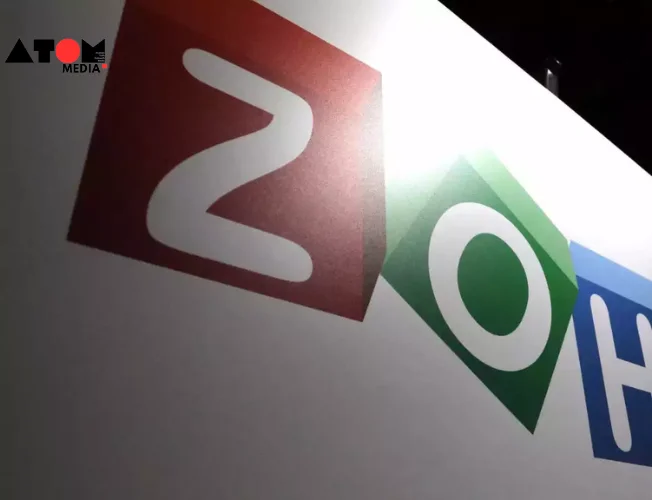In a significant move, Zoho Corporation, renowned for its suite of software services, is gearing up to enter the semiconductor manufacturing industry. The company plans to invest a substantial $700 million in this new venture, marking its foray into a domain traditionally dominated by specialized tech giants. This strategic decision aligns with Zoho’s ambition to diversify its business portfolio and capitalize on emerging opportunities in the technology sector.
Investment and Strategic Vision
Zoho’s $700 million investment underscores its commitment to establishing a foothold in the semiconductor industry. This move is part of a broader strategy to expand beyond software services and tap into the lucrative and critical semiconductor market. The investment will fund the development of state-of-the-art manufacturing facilities, research and development, and the acquisition of advanced technologies essential for producing high-quality chips.
Government Support and PLI Scheme
To support its ambitious plans, Zoho has approached the Indian government for subsidies under the Production-Linked Incentive (PLI) scheme. This scheme, designed to boost domestic manufacturing and reduce dependence on imports, offers financial incentives to companies setting up semiconductor manufacturing units in India. Zoho’s proposal is currently under review by the Ministry of Electronics and Information Technology (MeitY). If approved, the subsidies will significantly offset the initial investment costs, making the venture more financially viable.
Strategic Importance of Semiconductor Manufacturing
The semiconductor industry is of strategic importance to any nation’s technological and economic landscape. Semiconductors are the backbone of modern electronic devices, powering everything from smartphones to advanced computing systems. By entering this market, Zoho aims to contribute to India’s self-reliance in semiconductor production, reducing the country’s dependence on foreign suppliers and enhancing its position in the global technology arena.
Challenges and Opportunities
Entering the semiconductor manufacturing sector is not without challenges. The industry requires substantial capital investment, cutting-edge technology, and a skilled workforce. Moreover, the market is highly competitive, with established players like Intel, TSMC, and Samsung leading the way. However, Zoho’s strong financial position, innovative culture, and government support through the PLI scheme provide a solid foundation to overcome these challenges.
The venture also presents numerous opportunities. The global semiconductor market is experiencing robust growth, driven by increasing demand for electronic devices, advancements in AI and IoT, and the proliferation of 5G technology. By tapping into this market, Zoho can diversify its revenue streams and leverage its expertise in software to develop integrated hardware-software solutions, offering unique value propositions to its customers.
Zoho’s Broader Business Strategy
Zoho’s entry into semiconductor manufacturing is part of a broader strategy to diversify its business operations and explore new growth avenues. Traditionally known for its comprehensive suite of cloud-based software applications, Zoho has been expanding its horizons, exploring opportunities in various technology domains. The semiconductor venture complements its existing business, enabling the company to offer more integrated and holistic technology solutions.
Industry and Market Impact
Zoho’s foray into semiconductor manufacturing is likely to have significant implications for the industry. It could potentially stimulate competition, drive innovation, and lead to more competitive pricing. Additionally, Zoho’s entry could attract more investments into India’s semiconductor sector, fostering the growth of a robust semiconductor ecosystem in the country.
The move also aligns with the Indian government’s vision of making India a global hub for electronics manufacturing. By setting up semiconductor manufacturing units locally, Zoho will contribute to job creation, skill development, and technological advancement in the country.
Future Prospects
Looking ahead, Zoho’s success in the semiconductor industry will depend on several factors, including its ability to innovate, maintain quality standards, and effectively manage production costs. Collaboration with global technology leaders, investment in R&D, and a focus on sustainability will be crucial to achieving long-term success.
Zoho’s venture into semiconductor manufacturing represents a bold and strategic move that could reshape the company’s future and contribute significantly to India’s technological advancement. With a substantial investment, government support, and a clear vision, Zoho is poised to make a mark in the semiconductor industry, leveraging its strengths to drive innovation and growth.
Conclusion
In conclusion, Zoho Corporation’s decision to invest $700 million in semiconductor manufacturing marks a pivotal moment in the company’s evolution. This strategic initiative not only diversifies Zoho’s business portfolio but also aligns with India’s broader goals of technological self-reliance and industrial growth. As the company navigates the challenges and opportunities in this new venture, its success will hinge on its ability to innovate, collaborate, and leverage its existing strengths in software services. With the potential to drive significant industry impact and contribute to the growth of India’s semiconductor ecosystem, Zoho’s foray into this domain is a testament to its forward-thinking approach and commitment to technological excellence.
This strategic move is not just about expanding Zoho’s business horizons but also about contributing to a larger vision of technological self-sufficiency and innovation. As the company embarks on this new journey, the industry and market will keenly watch how Zoho leverages its investment to make a significant impact in the semiconductor sector.
Read more: Marketing News, Advertising News, PR and Finance News, Digital News





